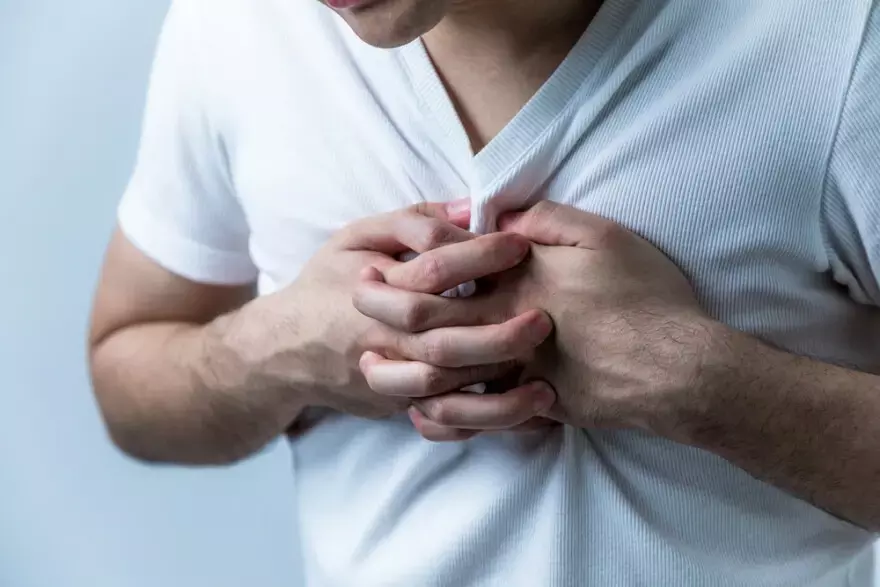- Home
- Medical news & Guidelines
- Anesthesiology
- Cardiology and CTVS
- Critical Care
- Dentistry
- Dermatology
- Diabetes and Endocrinology
- ENT
- Gastroenterology
- Medicine
- Nephrology
- Neurology
- Obstretics-Gynaecology
- Oncology
- Ophthalmology
- Orthopaedics
- Pediatrics-Neonatology
- Psychiatry
- Pulmonology
- Radiology
- Surgery
- Urology
- Laboratory Medicine
- Diet
- Nursing
- Paramedical
- Physiotherapy
- Health news
- Fact Check
- Bone Health Fact Check
- Brain Health Fact Check
- Cancer Related Fact Check
- Child Care Fact Check
- Dental and oral health fact check
- Diabetes and metabolic health fact check
- Diet and Nutrition Fact Check
- Eye and ENT Care Fact Check
- Fitness fact check
- Gut health fact check
- Heart health fact check
- Kidney health fact check
- Medical education fact check
- Men's health fact check
- Respiratory fact check
- Skin and hair care fact check
- Vaccine and Immunization fact check
- Women's health fact check
- AYUSH
- State News
- Andaman and Nicobar Islands
- Andhra Pradesh
- Arunachal Pradesh
- Assam
- Bihar
- Chandigarh
- Chattisgarh
- Dadra and Nagar Haveli
- Daman and Diu
- Delhi
- Goa
- Gujarat
- Haryana
- Himachal Pradesh
- Jammu & Kashmir
- Jharkhand
- Karnataka
- Kerala
- Ladakh
- Lakshadweep
- Madhya Pradesh
- Maharashtra
- Manipur
- Meghalaya
- Mizoram
- Nagaland
- Odisha
- Puducherry
- Punjab
- Rajasthan
- Sikkim
- Tamil Nadu
- Telangana
- Tripura
- Uttar Pradesh
- Uttrakhand
- West Bengal
- Medical Education
- Industry
Aortic dissection tied with Nonocclusive mesenteric ischemia: BMC

Aortic dissection leads to the continuous decrease in blood pressure and blood flow to the SMA, considered as a predisposing factor for Nonocclusive mesenteric ischemia (NOMI) according to a recent study published in the BMC Surgery
Nonocclusive mesenteric ischemia (NOMI) is defined as acute intestinal ischemia because of decreased blood flow in mesenteric vessels. Only a few cases of NOMI that occur secondary to aortic dissection (AD) have been reported, resulting in the lack of sufficient knowledge of diagnosis and treatment.
They aimed to report a case of NOMI caused by type B Aortic Dissection. A 26-year-old male patient was transferred to our hospital with the diagnosis of NOMI and aortic dissection in April 2018. Abdominal computed tomography (CT) assists in the diagnosis of paralytic intestinal obstruction, intestinal wall pneumatosis, and perforation. Emergency laparotomy revealed that the bowel wall supplied by the superior mesenteric artery (SMA) was pale with the palpable but weak pulsation of the parietal artery. The small intestine was extremely dilated with a paper-thin, fragile wall that was ruptured easily and could not be sutured. In this case, extensive resection and segmental drainage were done. Postoperatively, the digestive tract was reconstructed. However, the patient suffered from iron deficiency anaemia and short bowel syndrome eight months later and unfortunately died from long-term complications.
Thus, aortic dissection leads to the continuous decrease in blood pressure and blood flow to the SMA, considered a predisposing factor for NOMI. During the treatment, extensive resection and segmental drainage are the optimal surgical strategy, which can make benefit in emergencies especially.
Reference:
Nonocclusive mesenteric ischemia caused by type B aortic dissection: a case report by Mengchao Sheng, et al. published in the BMC Surgery
https://bmcsurg.biomedcentral.com/articles/10.1186/s12893-022-01656-2
Dr. Shravani Dali has completed her BDS from Pravara institute of medical sciences, loni. Following which she extensively worked in the healthcare sector for 2+ years. She has been actively involved in writing blogs in field of health and wellness. Currently she is pursuing her Masters of public health-health administration from Tata institute of social sciences. She can be contacted at editorial@medicaldialogues.in.
Dr Kamal Kant Kohli-MBBS, DTCD- a chest specialist with more than 30 years of practice and a flair for writing clinical articles, Dr Kamal Kant Kohli joined Medical Dialogues as a Chief Editor of Medical News. Besides writing articles, as an editor, he proofreads and verifies all the medical content published on Medical Dialogues including those coming from journals, studies,medical conferences,guidelines etc. Email: drkohli@medicaldialogues.in. Contact no. 011-43720751


